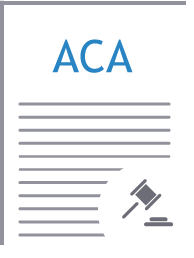Things may be looking up for the healthcare and pharmaceutical sectors. While states have yet to certify the results, the Associated Press has declared Joe Biden the winner of the presidential election and Republicans are projected to hold at least 50% of the Senate.
In my opinion, this is the best-case scenario for healthcare and pharmaceutical companies. A divided government will likely prevent sweeping legislative overhauls, though Biden could pursue changes through executive action. Click here for my review of Biden’s proposed healthcare policy agenda and its potential implications for the industry. With transformational change likely off the table, healthcare and pharmaceutical companies should be well-positioned to weather the next presidential term. Both sectors have served a vital role in helping to curb the COVID-19 pandemic. I believe these companies will continue to offer solid fundamentals with scale, diversity, modestly levered balance sheets and substantial cash flow profiles.
Attention turns to the ACA
 With a Biden administration and a Republican-controlled Senate, I believe expanding and strengthening the Affordable Care Act (ACA) would become Biden’s healthcare policy priority. However, the ACA is under scrutiny. The United States Supreme Court began a hearing on the ACA this week. No resolution is expected until April of 2021 at the earliest, though several justices have already signaled that the ACA could stand. If the Supreme Court upholds the ACA, I would expect Biden’s administration to use executive orders to strengthen the ACA and reverse policies under the Trump administration that dampened Medicaid enrollment and exchange outreach. If the Supreme Court rules the entire ACA unconstitutional, I believe a divided Congress would be less likely to step in and support the ACA.
With a Biden administration and a Republican-controlled Senate, I believe expanding and strengthening the Affordable Care Act (ACA) would become Biden’s healthcare policy priority. However, the ACA is under scrutiny. The United States Supreme Court began a hearing on the ACA this week. No resolution is expected until April of 2021 at the earliest, though several justices have already signaled that the ACA could stand. If the Supreme Court upholds the ACA, I would expect Biden’s administration to use executive orders to strengthen the ACA and reverse policies under the Trump administration that dampened Medicaid enrollment and exchange outreach. If the Supreme Court rules the entire ACA unconstitutional, I believe a divided Congress would be less likely to step in and support the ACA.
The ACA ruling will have implications for hospitals and government-focused managed care companies. If the ACA is upheld, these companies could benefit from ACA expansion. Expanded insurance coverage would likely increase reimbursement for hospitals, while government-focused managed care organizations could gain scale and increased negotiating power. If the ACA is struck down, I would anticipate a modest but manageable negative impact on hospitals and health insurers primarily focused on managed Medicaid.

MALR026384



 With a Biden administration and a Republican-controlled Senate, I believe expanding and strengthening the Affordable Care Act (ACA) would become Biden’s healthcare policy priority. However, the ACA is under scrutiny. The United States Supreme Court began a hearing on the ACA this week. No resolution is expected until April of 2021 at the earliest, though several justices have already signaled that the ACA could stand. If the Supreme Court upholds the ACA, I would expect Biden’s administration to use executive orders to strengthen the ACA and reverse policies under the Trump administration that dampened Medicaid enrollment and exchange outreach. If the Supreme Court rules the entire ACA unconstitutional, I believe a divided Congress would be less likely to step in and support the ACA.
With a Biden administration and a Republican-controlled Senate, I believe expanding and strengthening the Affordable Care Act (ACA) would become Biden’s healthcare policy priority. However, the ACA is under scrutiny. The United States Supreme Court began a hearing on the ACA this week. No resolution is expected until April of 2021 at the earliest, though several justices have already signaled that the ACA could stand. If the Supreme Court upholds the ACA, I would expect Biden’s administration to use executive orders to strengthen the ACA and reverse policies under the Trump administration that dampened Medicaid enrollment and exchange outreach. If the Supreme Court rules the entire ACA unconstitutional, I believe a divided Congress would be less likely to step in and support the ACA.
